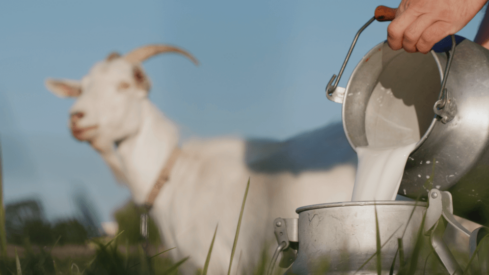Adding goat milk to pet food: The latest raw food fad?

What do dogs and cats following the raw pet food trend eat for breakfast? A growing number of blogs and influencers recommend a novel solution: kibble ‘cereal’ made with a goat milk topper.
Cereal with milk for pets
The basic trend is relatively simple. The topper, or sometimes just goat milk itself, is poured over the top of dry kibble in order to moisten it an…
Did you think it would be this easy? Nope! Just register. It’s free! Lorem ipsum dolor sit amet, consectetur adipiscing elit. Ut cursus turpis vel cursus ullamcorper. Sed ante mi, finibus eget porttitor a, tincidunt ac dolor. Vivamus ornare semper lorem, consequat commodo lectus elementum vitae. Cras id mattis urna. Donec rutrum dignissim lacinia. Duis ultricies sapien at ipsum tincidunt.
Sed in iaculis elit, sit amet convallis felis. Pellentesque non justo lectus. Donec sollicitudin lorem in sapien euismod varius at vitae mi. Maecenas ut elit ac risus consectetur vulputate. Praesent vel orci ante. Curabitur egestas dapibus nisi ac laoreet. Nullam a lacinia libero, non fringilla nisl.
You’re out of free articles,
register for unlimited access
